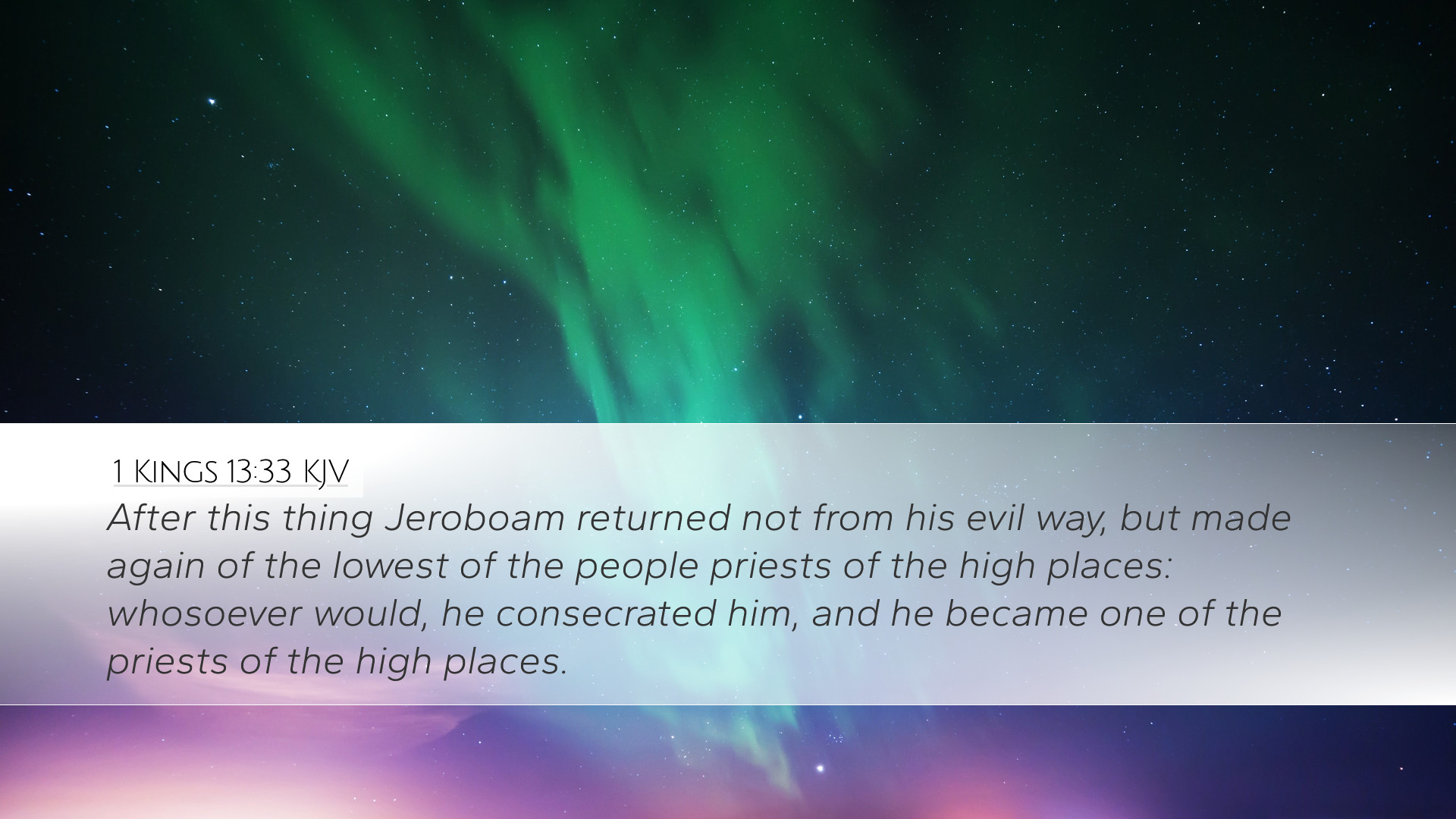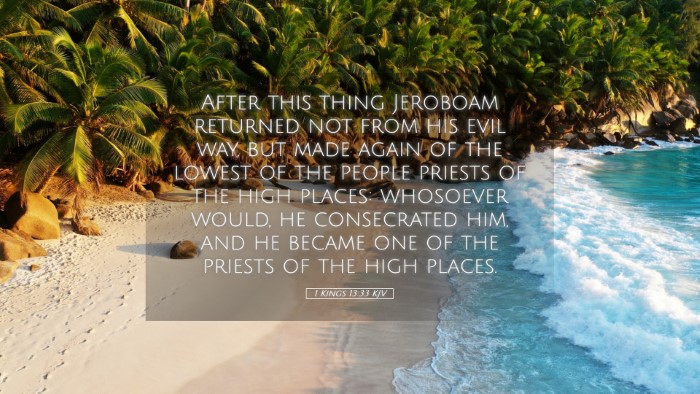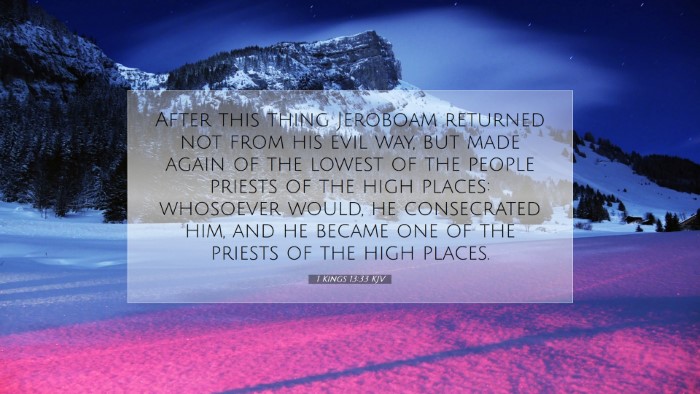Commentary on 1 Kings 13:33
"After this thing Jeroboam returned not from his evil way, but made again of the lowest of the people priests of the high places: whosoever would, he consecrated him, and he became one of the priests of the high places."
Introduction
The narrative of 1 Kings 13:33 is a pivotal moment that underscores the moral and spiritual decline embodied in the reign of Jeroboam. This verse serves as a summary of Jeroboam's failure to heed prophetic warnings and his continued rebellion against divine authority. As we reflect on this passage, we draw from the insights of celebrated public domain commentators such as Matthew Henry, Albert Barnes, and Adam Clarke, to provide a comprehensive understanding of its significance for contemporary readers, including pastors, students, theologians, and Bible scholars.
Exegesis of the Text
Contextual Background:
The context of 1 Kings 13 reveals the spiritual crisis in Israel post-Solomon's reign. Jeroboam, fearing the loyalty of his subjects to the house of David, instituted a new religious system characterized by idolatry and apostasy. He constructed golden calves and established high places for worship, directly contravening God's commands.
Analysis of Jeroboam's Actions
- Continued Rebellion: Jeroboam's refusal to repent after witnessing profound prophetic signs illustrates a hardened heart. Matthew Henry notes, "He was under a divine judgment and could not return because his heart was not right with God." This highlights the danger of persistent sin and the folly in ignoring God's admonition.
- Consecration of Unqualified Priests: The act of consecrating 'the lowest of the people' reflects a departure from God's ordained order of priesthood, which was meant to be reserved for the Levites. Albert Barnes remarks, "Jeroboam's elevation of the unqualified reveals a disdain for true worship and a grasp for political control." This reflects a theological and ethical corruption that threatened the spiritual integrity of the nation.
Religious Innovation vs. Divine Order
Jeroboam's innovations in worship serve as a cautionary tale of how spiritual leaders can be seduced by the desire for control at the expense of fidelity to God's ordinances. Adam Clarke elaborates on the dangerous precedent established by Jeroboam, warning that such innovations lead to spiritual chaos and a departure from authentic worship practices.
Theological Implications
This passage opens a discussion on themes of spiritual authority and the consequences of deviating from God's revealed will. We observe multiple layers of implication for the faithful:
- Moral Accountability: Leaders must be particularly mindful of their influence. Jeroboam's actions adversely affected an entire nation, illustrating the profound responsibilities that come with leadership.
- The Nature of Worship: True worship must align with God's standards. The improper priesthood established by Jeroboam sharply contrasts with the biblical precedent set by Moses and Aaron.
- The Call to Repentance: Jeroboam's refusal to repent serves as a warning. The faithful are reminded of the importance of turning away from sin and returning to God to restore true fellowship.
Historical Significance
Jeroboam's legacy is one marked by failure and judgment. His actions set a precedent for further idolatry, leading to the eventual exile and destruction of Israel. Matthew Henry asserts, "His evil doing laid the foundation for the ruin of the entire ten tribes." This historical perspective is essential for understanding the long-term consequences of sin and disobedience.
Practical Applications
Lessons for Today:
- Integrity in Leadership: Leaders today are called to uphold biblical standards and resist the temptation to conform to cultural pressures or personal ambitions.
- The Danger of Compromise: The text serves as a reminder of the peril inherent in compromising one's values for the sake of expediency or popularity.
- Commitment to God's Word: Faithful adherence to Scripture is paramount. Both pastors and congregants must continually seek God's guidance through His Word, maintaining a posture of humility and repentance.
Conclusion
The portion of Scripture in 1 Kings 13:33 invites reflection on the profound consequences of turning away from God’s commands. Through the examination of Jeroboam's actions and their implications, commentators provide valuable insights into the dynamics of leadership and worship. For today’s pastors, students, and scholars, the passage serves as both a warning and a call to uphold the purity of worship and fidelity to God’s ordained practices. Understanding these principles can foster a deeper commitment to God’s ways and a resistance to the pervasive influences that seek to distort the faith.


